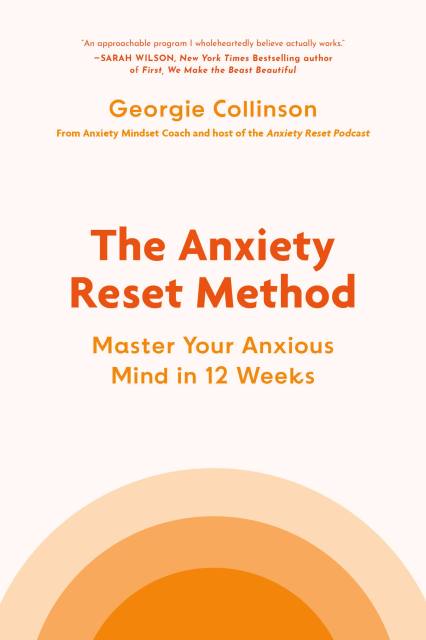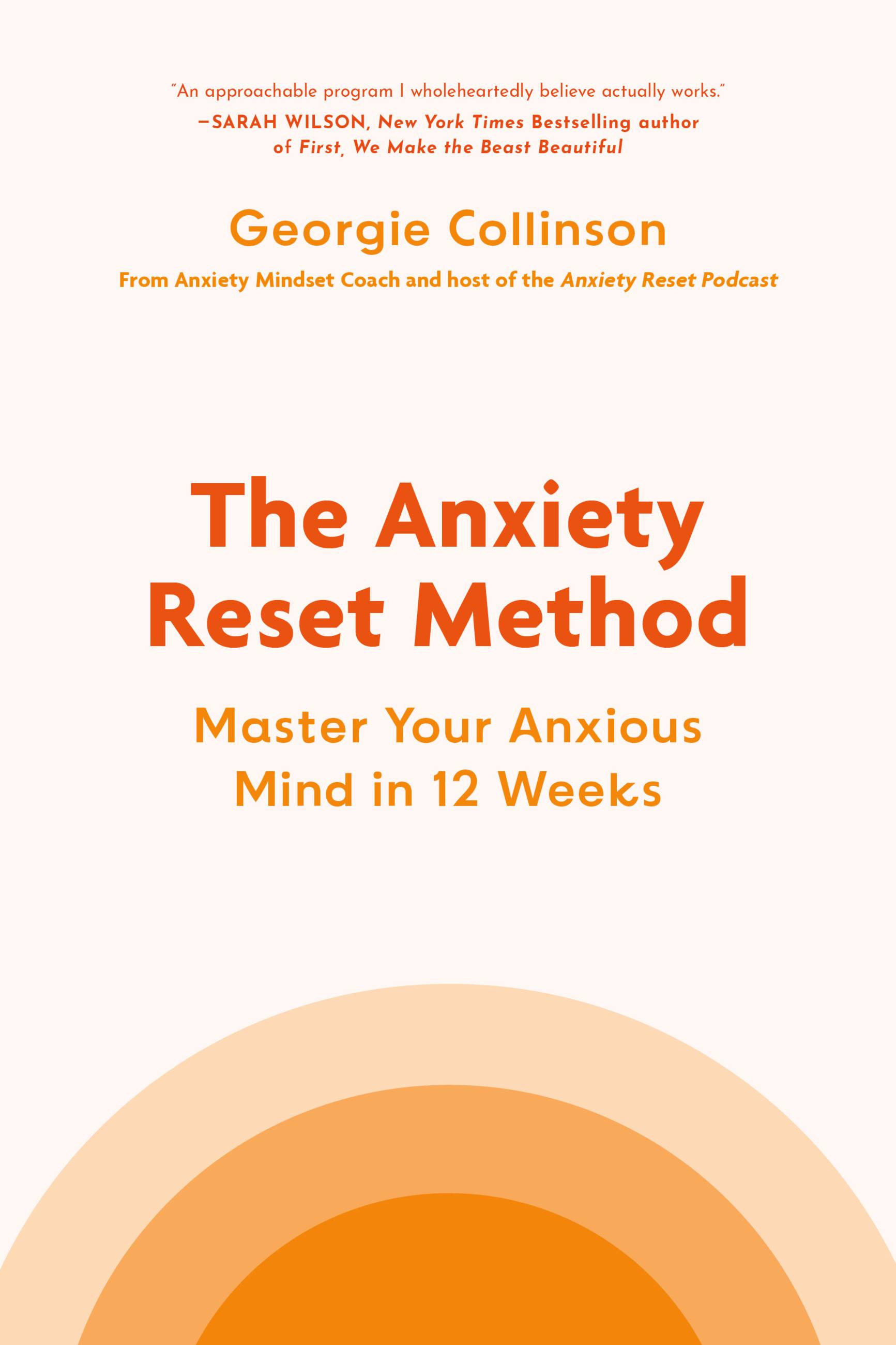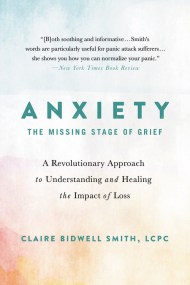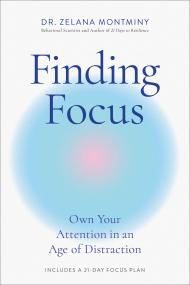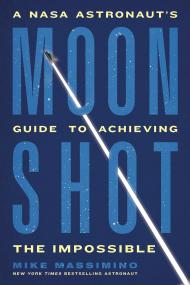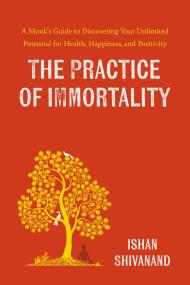By clicking “Accept,” you agree to the use of cookies and similar technologies on your device as set forth in our Cookie Policy and our Privacy Policy. Please note that certain cookies are essential for this website to function properly and do not require user consent to be deployed.
The Anxiety Reset Method
Master Your Anxious Mind in 12 Weeks
Contributors
Formats and Prices
- On Sale
- Nov 7, 2023
- Page Count
- 288 pages
- Publisher
- Balance
- ISBN-13
- 9780306834783
Price
$26.00Price
$33.00 CADFormat
Format:
- Hardcover $26.00 $33.00 CAD
- ebook $14.99 $19.99 CAD
- Audiobook Download (Unabridged) $24.99
This item is a preorder. Your payment method will be charged immediately, and the product is expected to ship on or around November 7, 2023. This date is subject to change due to shipping delays beyond our control.
Buy from Other Retailers:
Anxiety Mindset Coach and hypnotherapist Georgie Collinson offers a 12-week program to help you master your anxious mind and achieve unshakable inner confidence
The Anxiety Reset Method is a 12-week program designed to combat high-functioning anxiety, using holistic solutions that address both the psychological and physical factors behind anxiety. Merging science with the spiritual, and good health with good sense, this successful method addresses both mind and body in order to build resilience and change your relationship to anxiety forever.
High-functioning anxiety is a perfectionistic, pressure-fueled type of anxiety. Despite the anxious feelings, people with high-functioning anxiety perform well, often very well, and are experts at hiding their struggle. But beneath the successful exterior, they feel panicked, overwhelmed, and pushed to the breaking point.
Over the course of 12 weeks, anxiety mindset coach, hypnotherapist, certified nutritionist, and naturopath Georgie Collinson will help you transform your relationship to anxiety. With practices, weekly checklists, and key idea sections, The Anxiety Reset Method provides a clear pathway to overcome the exhausting pressure of high-functioning anxiety and build the resilience you need to thrive. Your anxiety has controlled the narrative for too long—it’s time to master your anxiety and find the unshakeable inner confidence you deserve.
“An approachable program I wholeheartedly believe actually works”—Sarah Wilson, New York Times Bestselling author of First, We Make the Beast Beautiful Master Your Anxious Mind
-
“An approachable program I wholeheartedly believe actually works.”Sarah Wilson, New York Times Bestselling author of First, We Make the Beast Beautiful
-
"Georgie's variety of experience creates a refreshing and inspiring take on how to tackle high-functioning anxiety, to allow more space for an impactful life."Natalie Ellis, founder and CEO of Bossbabe
Newsletter Signup
By clicking ‘Sign Up,’ I acknowledge that I have read and agree to Hachette Book Group’s Privacy Policy and Terms of Use
